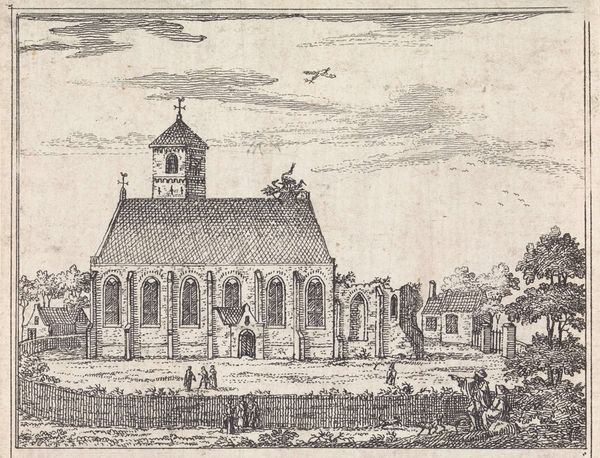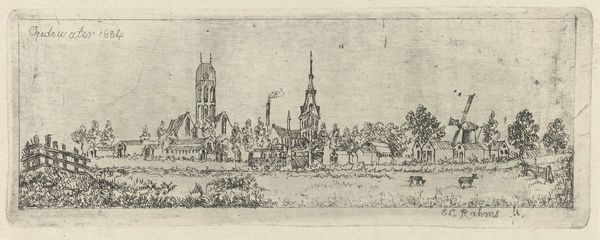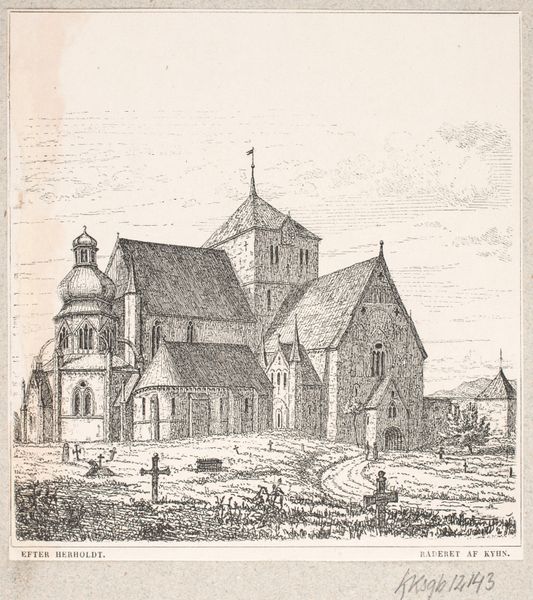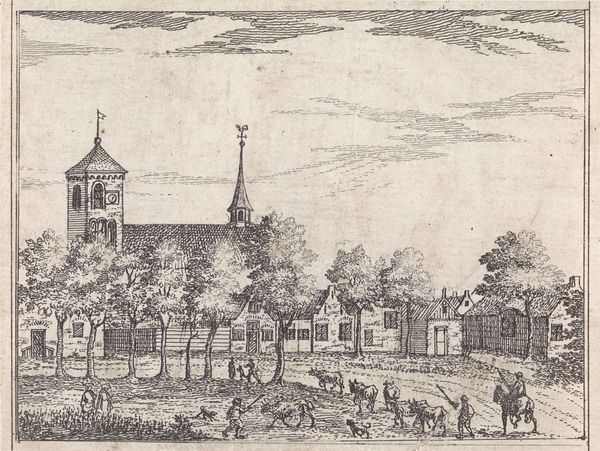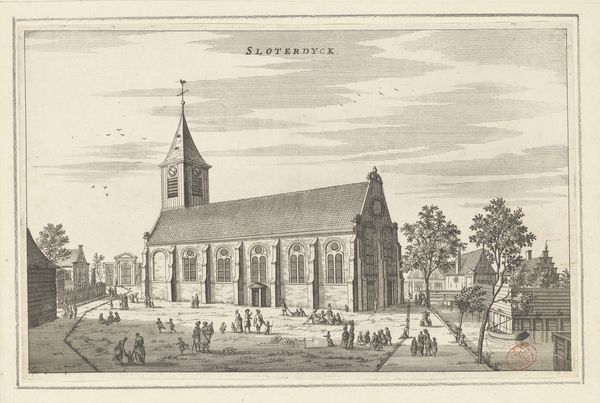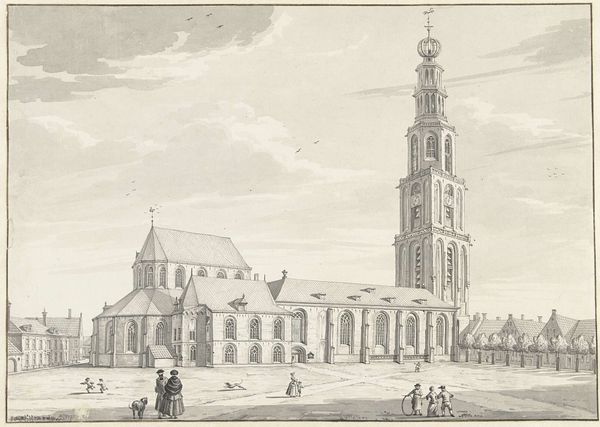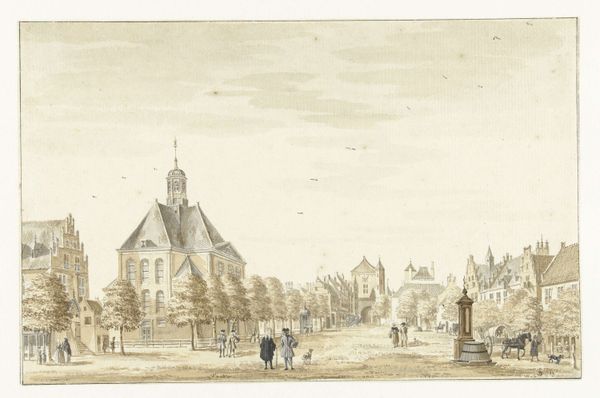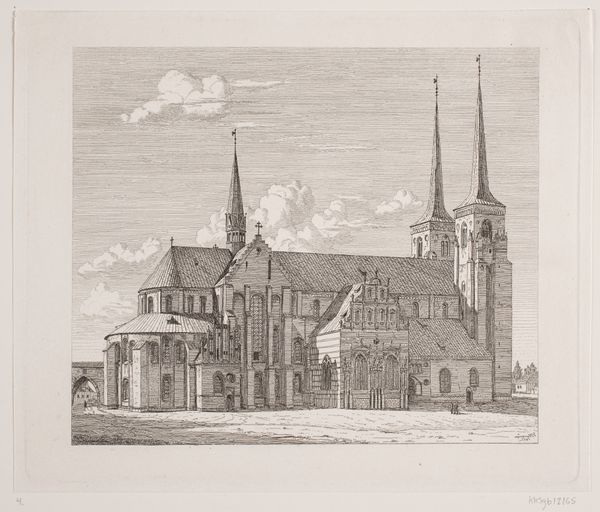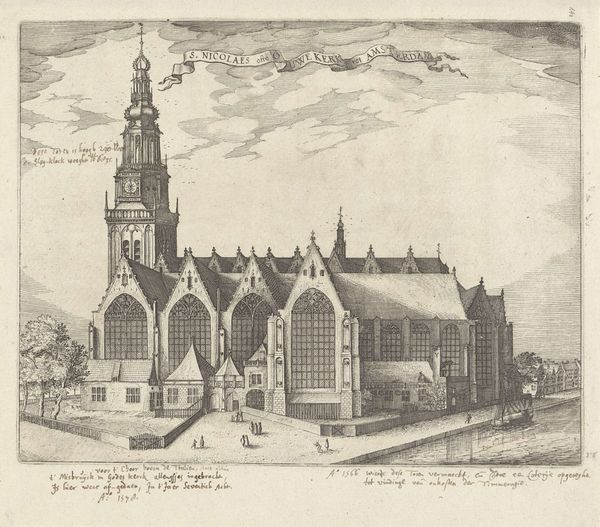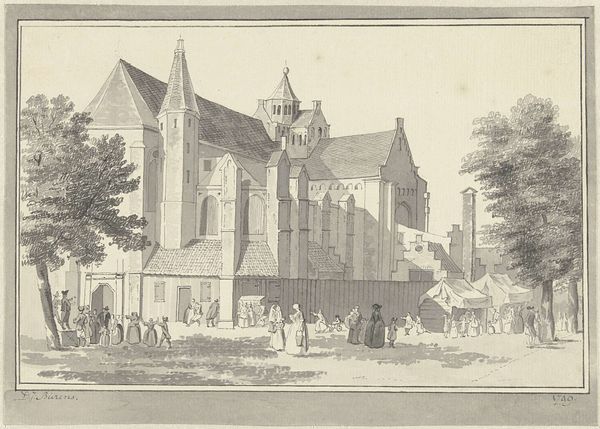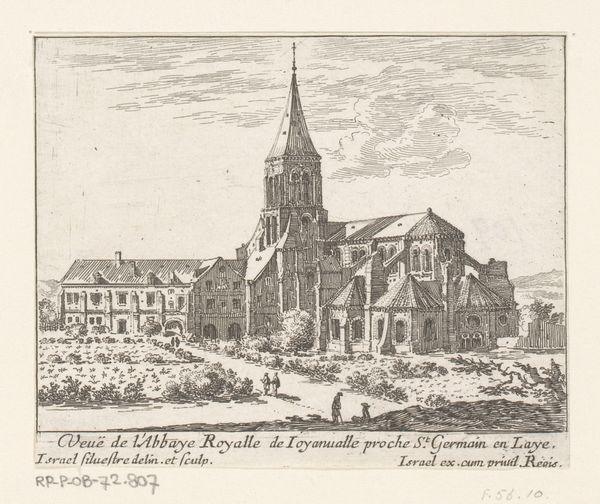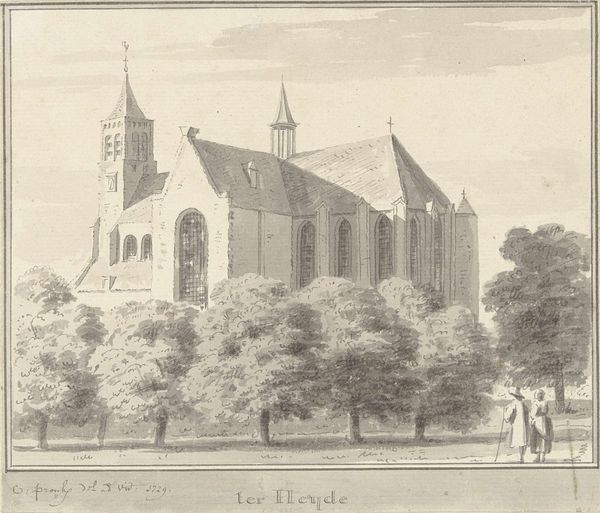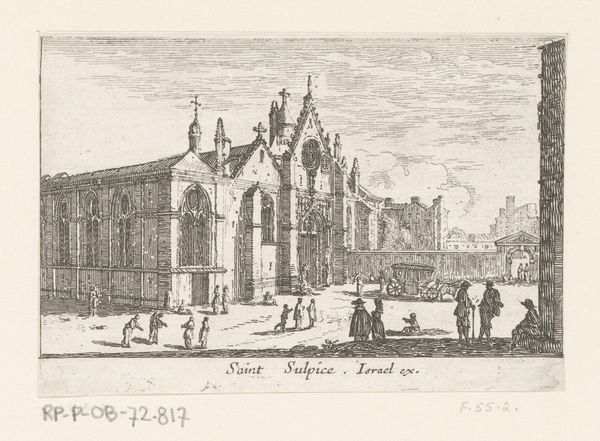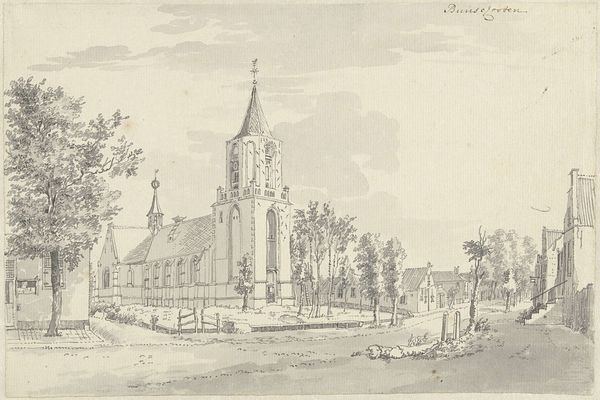
drawing, paper, ink, engraving, architecture
#
architectural sketch
#
drawing
#
aged paper
#
quirky sketch
#
baroque
#
old engraving style
#
sketch book
#
landscape
#
paper
#
personal sketchbook
#
ink
#
sketchwork
#
pen-ink sketch
#
pen work
#
genre-painting
#
engraving
#
architecture
#
initial sketch
Dimensions: height 62 mm, width 82 mm
Copyright: Rijks Museum: Open Domain
Curator: This architectural drawing from 1727 presents a sketch of the "Dorpskerk te Hillegom," crafted by Abraham Zeeman in ink on paper. Editor: There’s something about the detail and age that gives it a stark, almost austere quality, yet there’s a real sense of place. A somber charm, maybe? Curator: I'd say the composition does indeed portray a strong sense of its environment, it really captures a slice of 18th-century Dutch life, doesn't it? These visual records play a crucial role, revealing how religious structures functioned as landmarks within communities, shaping their identity. Note the storks nested on the roof... Editor: Absolutely! That detail gives pause to contemporary audiences when it comes to intersectional issues surrounding environment and land use. Was this cohabitation welcomed by everyone? Are they a decorative part of the artwork? It can become a launchpad to discuss the politics of space back then. Curator: Certainly. And within art historical analysis, Zeeman’s architectural drawings like this provided a vital role in shaping how society appreciated and engaged with buildings and urbanization projects. He contributed to a sense of historical continuity and pride by meticulously rendering these landmarks. Editor: I find it really compelling how something as simple as an initial sketch can embody broader conversations about community, history, and even ecological responsibility through its layered details and artistic decisions. Curator: Agreed. Considering the period and how it highlights our interaction with nature through these human-made structures—it's fascinating! Editor: Precisely, it reminds us to stay attuned to the myriad perspectives ingrained within such art. Curator: Indeed, there's always another layer, another story to discover.
Comments
No comments
Be the first to comment and join the conversation on the ultimate creative platform.
